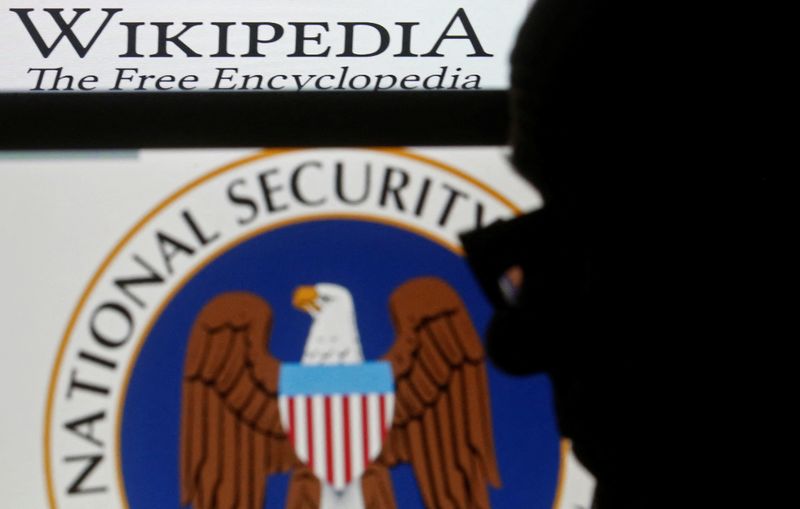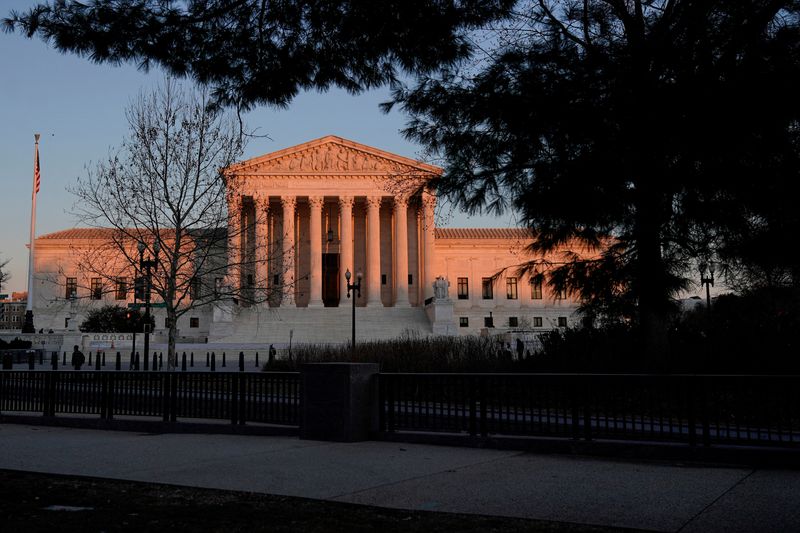By Andrew Chung
WASHINGTON (Reuters) -The U.S. Supreme Court on Tuesday declined to hear a bid by the operator of the popular Wikipedia internet encyclopedia to resurrect its lawsuit against the National Security Agency challenging mass online surveillance.
Turning away the Wikimedia Foundation’s appeal, the justices left in place a lower court’s dismissal of the lawsuit based on the government’s assertion of what is called the state secrets privilege, a legal doctrine that can shut down litigation if disclosure of certain information would damage U.S. national security.
Represented by the American Civil Liberties Union, Wikimedia Foundation sued in 2015 challenging the legality of the NSA’s “Upstream” surveillance of foreign targets through the “suspicionless” collection and searching of internet traffic on data transmission lines flowing into and out of the United States.
The NSA, part of the Defense Department, is the agency responsible for U.S. cryptographic and communications intelligence and security. The U.S. government has said the NSA’s surveillance targeting is authorized by a 2008 amendment to a federal law called the Foreign Intelligence Surveillance Act. Upstream’s existence was revealed in 2013 leaks by former NSA contractor Edward Snowden, who later fled to Russia and has been granted Russian citizenship by President Vladimir Putin.
The lawsuit cast the “surveillance dragnet” as an unlawful invasion of Americans’ privacy that violates the U.S. Constitution’s First Amendment, which protects freedom of speech, and Fourth Amendment, which prohibits unreasonable searches and seizures. Wikimedia compared the interception by the NSA of its communications to the “seizing and searching the patron records of the largest library in the world.”
The Richmond, Virginia-based 4th U.S. Circuit Court of Appeals in 2021 upheld a federal judge’s dismissal of the case, concluding that the NSA properly invoked the states secrets privilege – meaning the litigation cannot proceed – because disclosing details about the surveillance could harm U.S. intelligence operations.
The ACLU’s lawyers had urged the justices to hear the case, stating: “Although this mass surveillance of Americans’ private communications raises grave constitutional questions, its lawfulness has yet to be considered by any ordinary court, civil or criminal, in the more than 20 years of its operation.”
(Reporting by Andrew Chung; Editing by Will Dunham)

